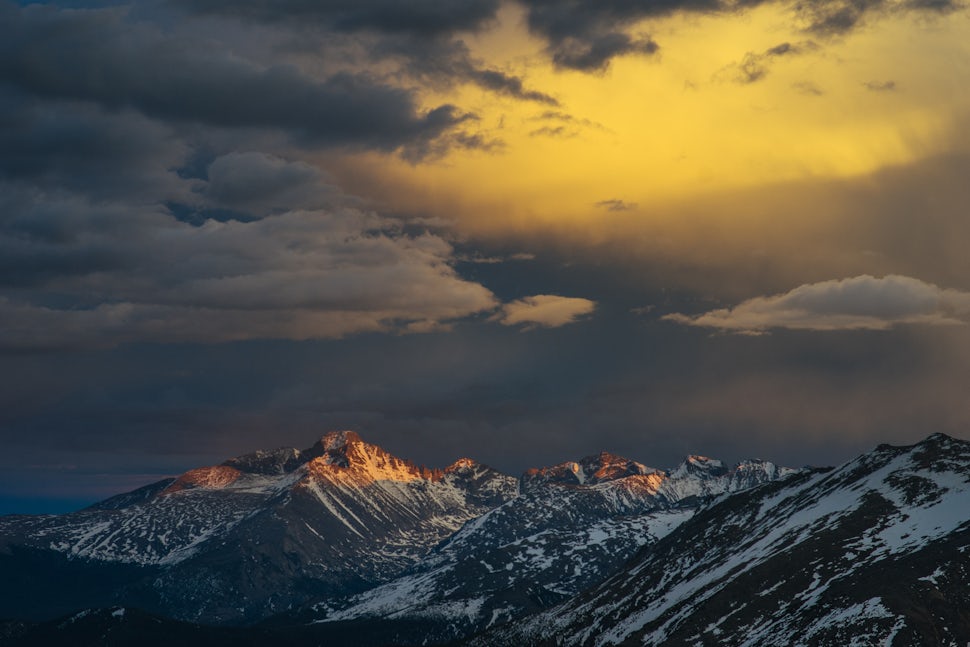National Parks are Closing, and Unfortunately, That's Probably a Good Thing
As people flock outside for a break from self-isolation, poor decisions are causing many parks to experience significant crowds.

As we wrote last week, there are a few precautions to take when heading outside in this turbulent time. Avoiding road trips, small towns, crowded areas, and unnecessary risks were among our suggestions. However, many outdoor areas have seen unprecedented levels of crowding due to two main factors.
• One, the closure of ski resorts has resulted in popular backcountry ski areas being inundated with skiers. (I'm fully expecting towns or counties to take this into their own hands and ban backcountry access or prevent parking in order to curb visitation).
• Two, popular hiking trails and National Parks are seeing significant increases in visitation (last week the Interior Department decided to waive fees for National Parks) as people "self-isolate" in the outdoors.
Why this is bad
Well, it runs counter to most advice surrounding the coronavirus. Increased crowds make it far more difficult to avoid people, and 6ft rules start to look more like rough suggestions. Most parks are running on limited staff and resources right now, creating a situation similar to a government shutdown. This means many facilities aren't open, and any potential medical or rescue scenarios put even more strain on areas that don't need that right now. Just as we recommend that folks stay away from National Parks during shutdowns, we're making the same recommendation now. It's not a responsible decision right now to crowd and puts a strain on these places.
Additionally, many parks are surrounded by small communities that are at great risk due to limited medical facilities. As we said last week, we should be trying to avoid these communities at all cost. Rocky Mountain National Park closed on Friday after the town of Estes Park (which lies at the main entrance to RMNP), requested the park be closed to reduce visitation in town and to allow the town to focus resources on their local community.
In Yosemite, while the park concessionaire had already closed all lodging, food, and other facilities, the park wasn't under a full closure affect until Friday. As a park that regularly sees extremely high levels of visitation, local Mariposa County officials were growing concerned about visitors bringing infection to their communities. Of primary concern was the lack of available sanitation with public restrooms being closed, and visitors not adhering to social distancing in places like the Village Market.
Update 3/23 - After Bay-area residents flocked to Marin County and Point Reyes National Seashore this weekend, the decision was made to close access and limit visitation in the area.
Sure, it's unfortunate that many places are being forced to close. But so many of these current (and future) closures are due to MANY people not respecting local communities or heeding the advice of government officials. Are *you* capable of enjoying the outdoors responsibly? Maybe so. But based on much of what we've seen so far, it's clear that the collective *us* is not capable of doing so -- forcing decisions like these.
National Parks that are currently closed
We will try and keep this as up to date as possible, but you can always check the status of individual parks at NPS.gov.
- Rocky Mountain National Park (closed 24/7, 7 days a week)
- Yosemite National Park (closed 24/7, 7 days a week)
- Yellowstone National Park
- Grand Teton National Park
We want to acknowledge and thank the past, present, and future generations of all Native Nations and Indigenous Peoples whose ancestral lands we travel, explore, and play on. Always practice Leave No Trace ethics on your adventures and follow local regulations. Please explore responsibly!
Do you love the outdoors?
Yep, us too. That's why we send you the best local adventures, stories, and expert advice, right to your inbox.









